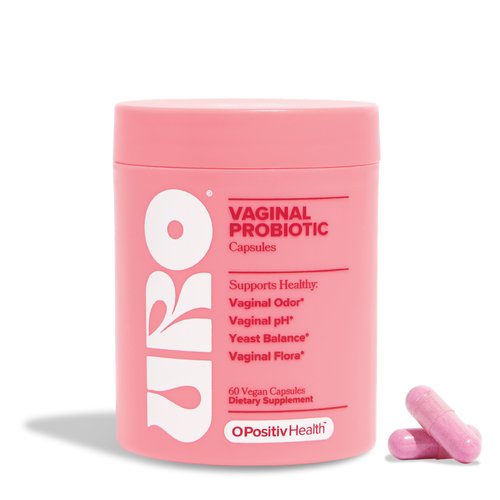When the weather outside is frightful, a woman’s experience can be far less delightful. From menstruation and menopause to mental health, colder weather can complicate our regular health concerns and introduce new ones.
But you aren’t alone in a battle of “me vs. meteorology.” Grab your favorite blanket as we clarify the ways women are more affected by frosty temperatures and offer tips to make bitter weather more bearable.
The Cold Truth
Does it seem like women at work get colder in the office than men? Clothing choice can have something to do with it, but you aren’t imagining it: there are some differences between male and female anatomy that contribute to women being more affected by colder temperatures than men.1
Women typically1:
- Burn fewer daily calories than men
- Have less heat-generating muscle mass than men
- Have a higher percentage of body fat between the skin and muscles, making it slightly harder for warmth from blood vessels to reach the surface of the skin
- Have a lower metabolic rate than men, which reduces their capacity for heat production during cold exposure
Additionally, women have a different hormonal balance than men.1 Women have large amounts of two specific hormones that contribute to feeling more cold: estrogen and progesterone.
Estrogen can dilate, or widen, the blood vessels in our extremities (hands, feet, and ears), allowing more heat to be sacrificed to the air vs kept in those extremities. Progesterone can constrict our blood vessels, causing less blood flow to certain areas to keep warming blood closer to our internal organs. Together, these hormones can keep women’s extremities about 5.4℉ lower than men’s, and lower levels of these hormones can also lead to lower serotonin levels and a disrupted circadian rhythm - eg. causing low energy and sleep disruption.2
Studies show that the hormone testosterone found in men actually contributes to feeling less affected by the cold by inhibiting a specific, cold-sensing protein.3 As men age their testosterone declines, which explains why older men may be slightly more affected by the cold than younger men.
Menstruation
Your monthly menstrual cycle not only delivers a roller coaster of hormonal change, but changes in core temperature that can leave you feeling that frigidity in the air even more.4 Those same hormones we spoke about above change levels based on the phase of your cycle, and while affecting your body’s core temperature they can affect your overall perception of the cold.
Not only can you feel colder as a woman in winter, but the temperature can also seemingly worsen the period symptoms you experience.5 Those hormones we discussed that control blood vessel constriction? They can also affect the severity of the cramps you feel.5
Other symptoms—like feeling tired, irritable, and unable to concentrate—can also be attributed to lower iron levels and lower levels of important hormones.
If you experience especially heavy periods, your body may lack the iron it needs to operate during your period to keep your blood cells working sufficiently. A lowered immune system can leave women more susceptible to winter colds and illnesses, which cause dryer skin and other winter worries.
Your endocrine system controls your hormones, and grey skies that limit natural sunlight can impact hormone levels.9 Along with the hormones that regulate blood flow and core temperature, serotonin (the “feel-good” hormone) and melatonin (which manages your sleep-wake cycle) play key roles in mood and sleep regulation.10,11 When these hormones are disrupted, it can make period symptoms feel more intense.
Lower levels of vitamin D, also obtained from sunshine more easily in warmer months, can also contribute to moodiness and lower energy, making those PMS symptoms even more dramatic.7,8
Supplements like our FLO Ovarian Support Capsules and FLO Endocrine Superfood Powder are formulated to support hormonal balance—even when the weather and your cycle seem to conspire against you.*
Menopause
Just because your period has chilled out doesn’t mean your susceptibility to chilly weather will. Menopause is when your period has completely stopped, and is typically diagnosed after a woman goes 12 months without a menstrual period, vaginal bleeding, or spotting.6
While menopause can take months or years to fully stop your period coming, the transition period called perimenopause also brings about a change in the levels of your hormone production. Symptoms of menopause famously include hot flashes and night sweats which can be exacerbated by environments where the heat is cranked up.16
Decreasing levels of estrogen and other hormones can affect menopausal women’s body temperature regulation, reduce skin hydration, and affect their circadian rhythm, causing menopausal women to feel intense temperature fluctuations, dramatically dry skin, and even more disruptions to their sleep cycle.
On top of it all, the holiday season comes with an increased consumption of warm beverages and alcohol which can also trigger these symptoms.16
Staying hydrated, keeping your joints warm, and seeking out cooling methods to battle night sweats can help. Supplements like our MENO Vitamin Capsules can help target sleeplessness, hot flashes, night sweats, and mood swings.*
Mental Health
Unfortunately, women are almost twice as likely to develop depression as men.13 Not only can hormonal changes affect our risk of PMS, PMDD, and depression, but changes to the weather can, too.13
Seasonal Affective Disorder (appropriately named SAD) is a type of depression that's directly related to changes in seasons and affects about 5% of the American population.14 Most people affected by SAD experience symptom arrivals in the fall with the cooler weather and don’t typically see these symptoms dissipate until spring and summer when the sun is back to warm our skin and faces.15
Symptoms of SAD can include14:
- Difficulty concentrating
- Feeling listless, sad, or down most of the day
- Feeling hopeless, worthless, or guilty
- Low of energy
- Losing interest in activities you once enjoyed
- Sleeping too much
- Craving carbs, overeating, and weight gain
- Having difficulty concentrating
- Having suicidal thoughts
It’s also worth noting that the colder months can leave people feeling more isolated at home, especially with the addition of the holiday season which can bring about stress, loneliness, and grief.17
Cold weather can have unpleasant effects on us physically and emotionally, but you should never have to feel alone in your experience. If you believe you are experiencing symptoms of depression or SAD, consult your doctor to discuss your symptoms and possible treatment options like psychotherapy, light therapy, dietary supplements, or medication.
If you or a loved one is in crisis, there are always support resources available to you. For immediate support, you can contact a crisis counselor at 988lifeline.org, by calling or texting 988, or by texting HOME to 741741.
Keep Cozy And Carry On.
Cold weather is inevitable, but your discomfort isn’t. Knowing why you are more affected by colder weather will help you prepare, whether you choose to take supplements to boost your body’s defenses, track your cycle to be aware of when you may feel stronger effects, or simply dress for comfort, we know you are ready to fight off the “freeze.”








